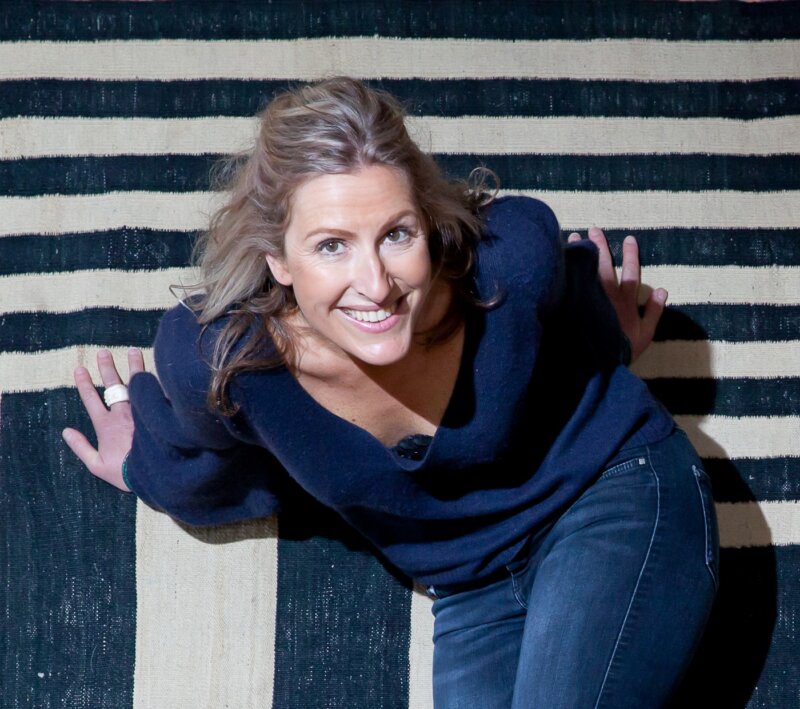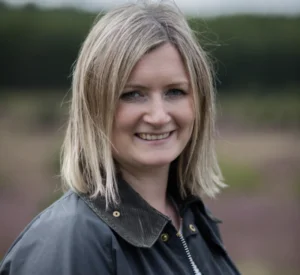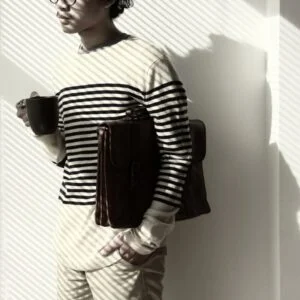Having been raised in Rio de Janeiro, Nathalie Vaandrager qualified as a biologist in the Netherlands. From laboratory work, she moved into Unilever’s marketing team and eventually established Sloane Stationery in 2010, named after the London neighbourhood where she lived with her family at the time. She now lives with her husband and three teenage children in the Netherlands, where she balances family life and a flourishing business with beekeeping and, more recently, teaching English to the Ukrainian refugees she and her family have welcomed. We recently caught up with Nathalie to learn more about her inspiring entrepreneurship journey.
Luxury stationery is really having a moment – why do you think this is the case, in this increasingly digital age?
I believe the rise of digital communications has actually played a role in this. As life becomes more lightning-speed, people look for ways to put the brakes on, hence the rise in the popularity of ‘slow living’ activities. When I first set up Sloane Stationery, my husband said to me, “Who on earth buys paper diaries these days?” but, as humans, there is a genuine desire to physically connect, and that is as much about getting our hands dirty in the garden, or putting pen to paper, as it is about being able to hug someone in person.
You launched in 2010 – did you see this coming?
The impetus came primarily from my work in marketing, which connected me, via clients, with the art of bookbinding. It’s a craft in need of revival, and I consider myself fortunate to work with artisans who have been dedicated to the skill for years. I am a big believer in taking notice of what comes into your path; this awareness came into my path, and I saw that there was a space for the brand.
How have you built your brand and made it stand out from the crowd?
I think by staying very close to my original vision. I’m aware that our name – Sloane Stationery – is a little misleading, as I frequently get enquiries from people about greeting cards and the like, but my vision for Sloane Stationery was always bound (no pun!) to bookbinding. I think resisting the urge to diversify – even when it was financially tempting to do so – has been key to us being able to carve out our own niche in the market.
Did you ever take a gamble on straying from this path?
Sloane Stationery is handmade in the United Kingdom – but a few years after setting up, I became concerned that the product was too expensive to be viable, so I moved production to China. I can’t say that it didn’t benefit the brand in the short term – the more accessible price point brought us many new stockists – but it wasn’t long before I moved operations back to the UK. Even though we lost a number of those stockists, sustainability is a large part of our brand identity and the airmiles, alone, did not feel right for me – and, fortunately, some of those stockists have come back over time.
What was your first ‘hurrah’ moment with the brand?
When Gwyneth Paltrow was just establishing GOOP, I sent her a book, embossed with a wishbone motif and she got in touch for a collaboration. That was definitely a point at which I realised that I was on the right track.
What have been some of your challenges, and how have you overcome them?
The decision to make Sloane Stationery completely vegan was logistically difficult, as it involved examining every element of the supply chain from paper to glue, but I was completely committed to doing it as part of my personal and brand ethos. Brexit has, of course, had an impact on our European markets too. Going forwards, one of the challenges I will need to face is the fact that bookbinding is a dying craft, and that there are few people coming up in the industry, so the artisans upon which the uniqueness of my business depends will be in short supply.
What are your plans for the future of Sloane Stationery?
I’m intending to build our social media presence. I’m also working with new artists and illustrators for cover designs, as well as looking at the possibility of working with designs on the paper (which is milled in Florence) itself. I’m also creating a campaign for Christmas 2022, focusing on ways to make your workplace beautiful.
How do you think the pandemic has impacted Sloane Stationery?
The move towards working from home certainly seems to have inspired people to curate lovely workspaces for themselves; to create a place that makes them feel calm and content in all the shifts and uncertainty. In times of instability, there is also something very empowering and positive about opening a new notebook to make a plan, or putting pen to paper on a blank page.
How would you advise someone starting out on their own founding journey?
Be focused. Never forget what you’re about and what your original vision was – even when sales are down and times are tough and you’re tempted to do something that seems as though it could be a quick solution, always ask yourself ‘does it make sense for the brand?’ Build good relationships, be open to receiving feedback, develop a thick skin and, above all, be prepared to work hard.
Who inspires you?
My grandmother. She was a surrealist painter and very eccentric; as a child, I spent hours in her atelier and found her utterly fascinating. I have inherited none of her artistic genes – these have all gone to my sister, who is also incredibly artistic and a huge inspiration for me. We collaborate on other projects, and I love working with her. I’m inspired by people who work hard, such as the Hungarian scientist Katalin Kariko, whose passion and dedication to working with mRNA was once derided but has recently become key to developing the Modena vaccine against Covid-19. I am lucky to be surrounded by many strong women in my family and I see that now in my 14-year-old daughter – she has that fire as well.
Do you have any beliefs, or mantras, that you live by?
‘Be yourself – everyone else is taken’ – you have to be true to yourself and your vision. I also believe in respecting the world we live in, so ‘always leave the campsite cleaner than you found it’ is another saying that I love. That said, one of the hallmarks of Sloane Stationery is communicating these messages, via our embossed cover designs, in sassy, subtle or irreverent ways: for instance, the wishbone motif, or ‘Sh*t to do.’ We also donate 10% of all profits to a different cause each year – this year it’s the Jane Goodall Institute, and in 2021, it was the Plastic Soup Foundation, which works to reduce plastic pollution in the world’s oceans.
Sloane Stationery on Instagram – @sloanestationery. Web: www.sloanestationery.com
TSF Reporters
The Successful Founder Magazine is the go to feature-rich magazine for founders on all stages of their entrepreneurship journey .






